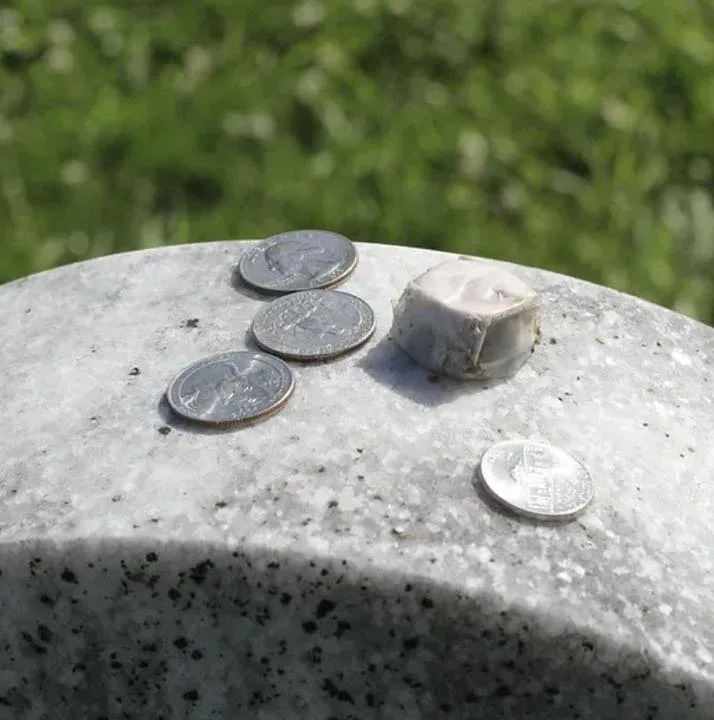The tradition of placing coins on gravestones, although its origins are somewhat uncertain, holds profound significance for veterans and their families. While some speculate its roots trace back to the Roman Empire, others contest this, citing a lack of documented evidence. Regardless of its historical provenance, the act serves as a poignant tribute to the sacrifices made by those who serve in the armed forces.
During the Vietnam War, placing coins on gravestones emerged as a practical means of communication amidst the political discord surrounding the conflict. Rather than risking uncomfortable confrontations with families, leaving a coin conveyed the message of a visit without engaging in contentious debates.
Symbolically, each coin carries its own meaning. A penny denotes a simple visit, while a nickel signifies a deeper connection forged during boot camp. A dime represents serving together, even briefly, before parting ways, while a quarter indicates being present at the time of death.

This tradition is just one example of the enduring bond among veterans, symbolizing respect, camaraderie, and remembrance. Additionally, challenge coins, another cherished military tradition, symbolize unity among service members, though they hold no monetary value.
While coins hold various symbolic meanings across cultures and traditions, their significance in honoring the sacrifices of military personnel and their families remains unparalleled. Whether placed as tokens of remembrance or buried with the departed, coins serve as tangible reminders of the enduring legacy of service and sacrifice.





